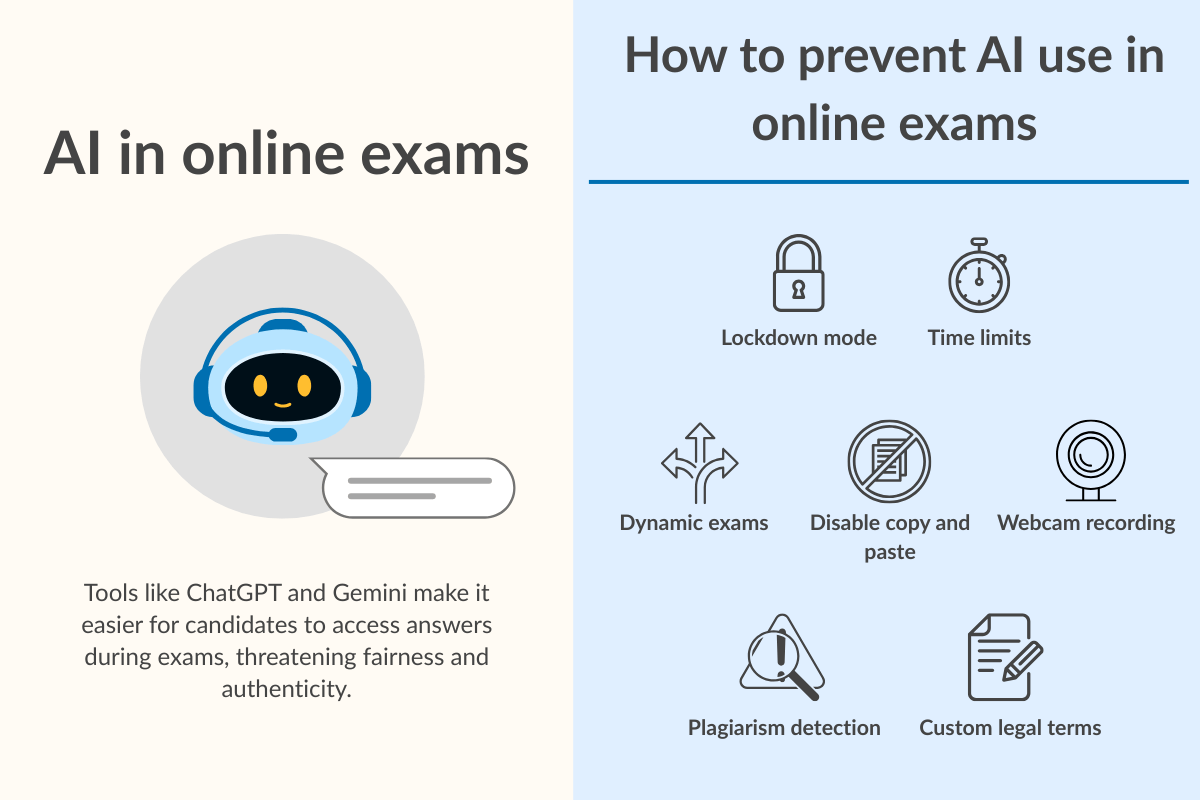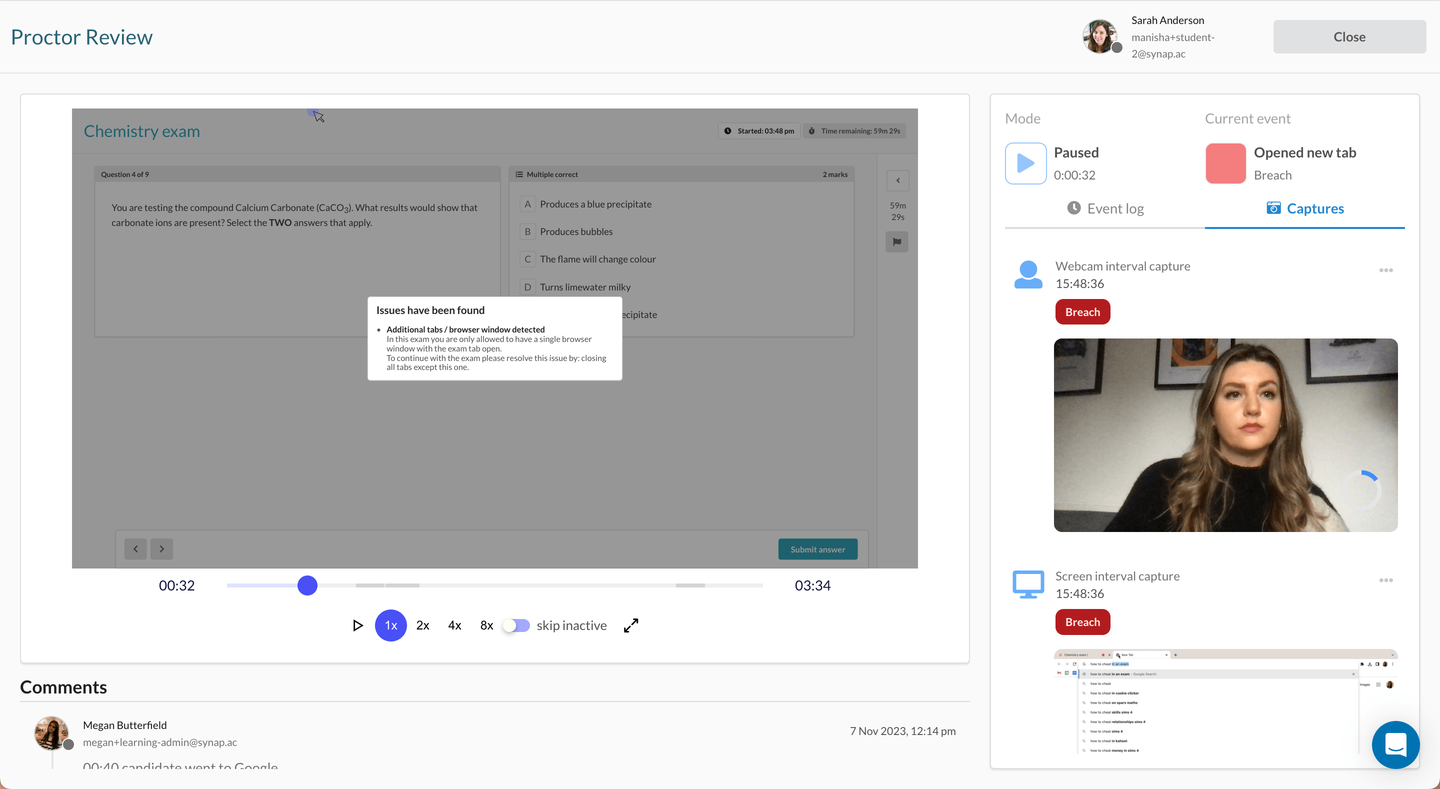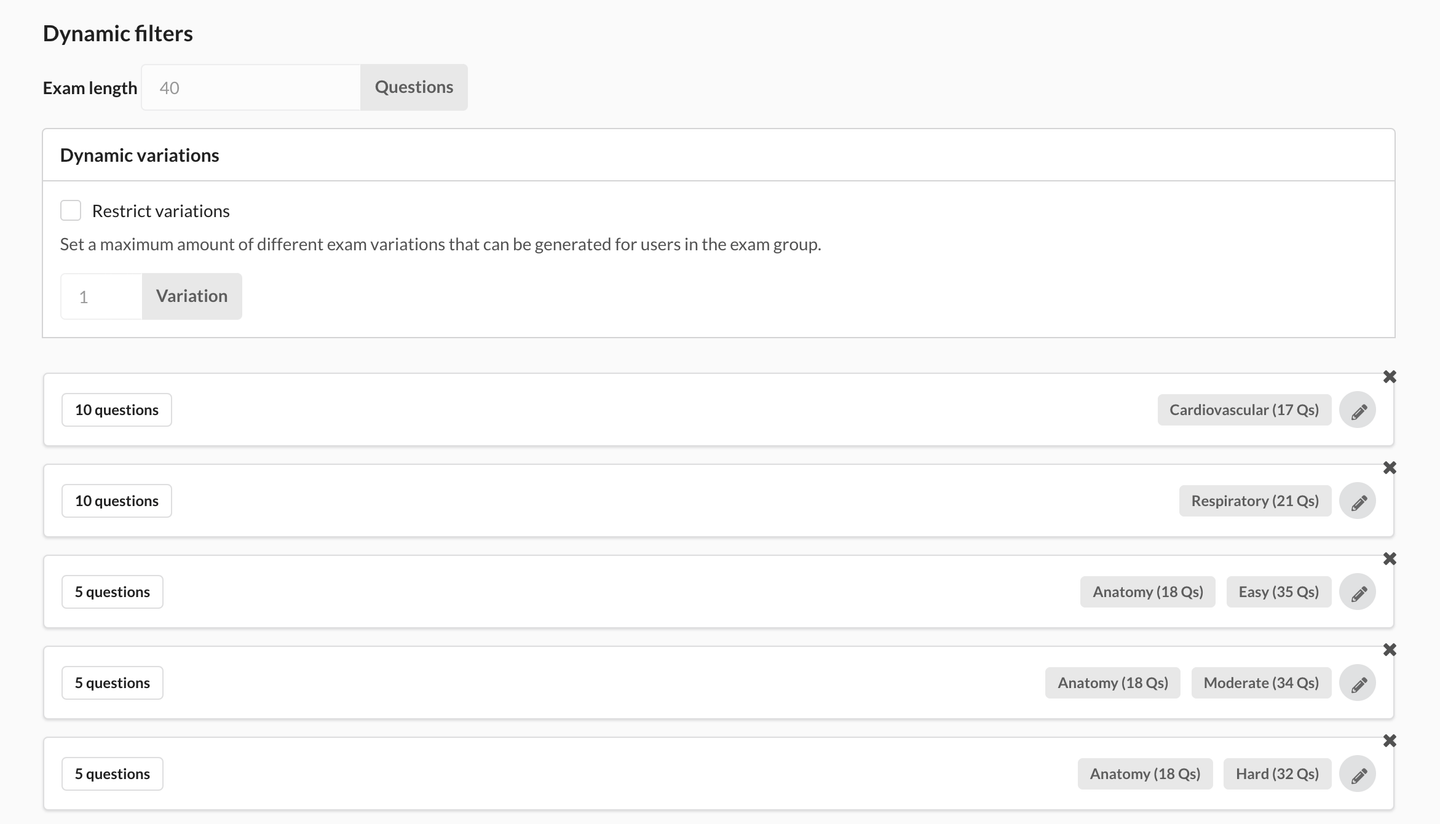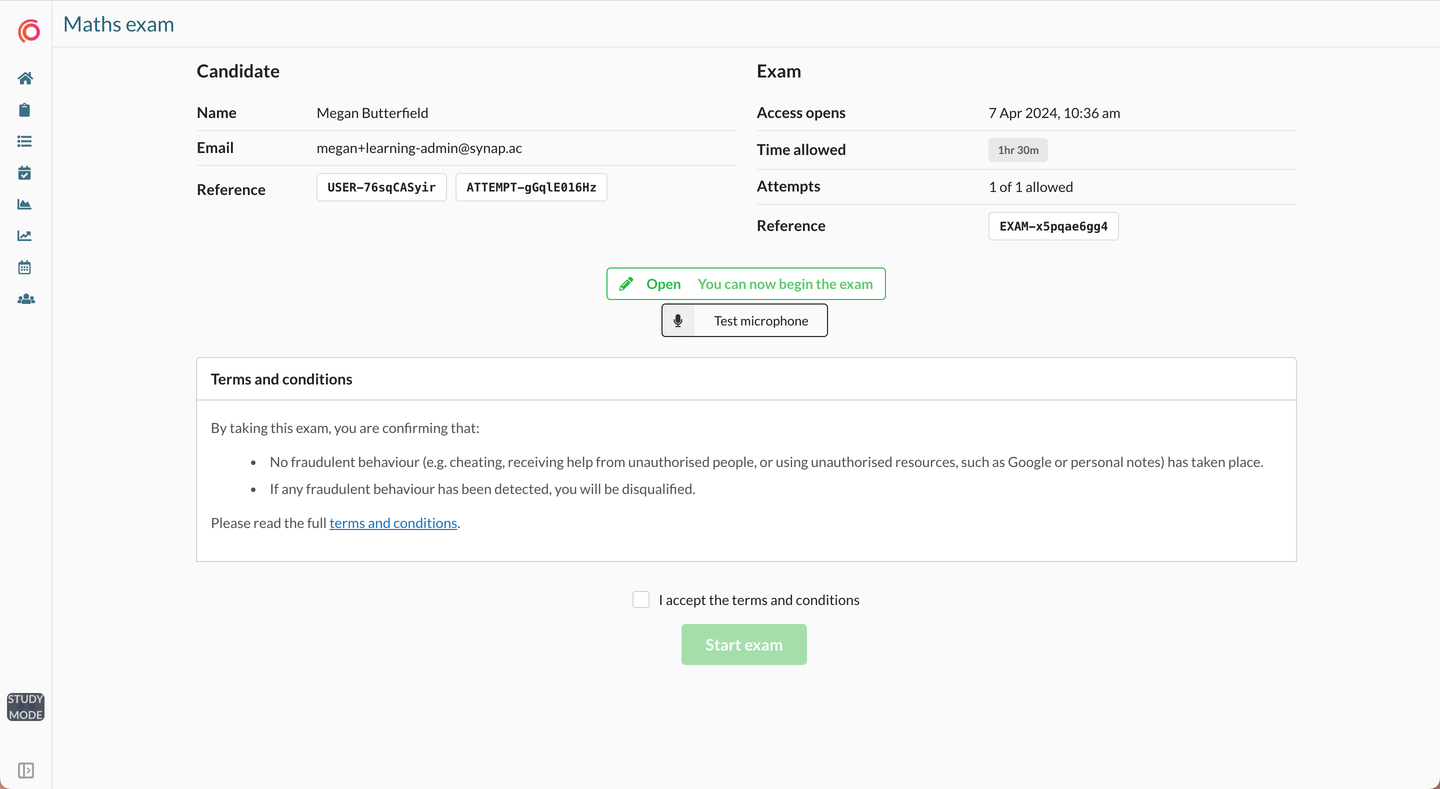Artificial intelligence (AI) tools like ChatGPT, Google Gemini, and Microsoft Copilot offer a new way for students to access information during exams. These tools generate detailed, human-like responses in just seconds. As a result, online assessment providers delivering high-stakes exams are now facing a new challenge: how to ensure the authenticity of candidate responses. Recent reports suggest that the proportion of candidates using any AI tool during exams, surged from 66% in 2024 to 92% in 2025 [1]. This raises serious concerns about exam fairness and authenticity meaning online exam platforms and organisations must now prioritise preventing AI usage through stronger online proctoring, lockdown technology, and anti-cheating features.
Why prevent the use of AI tools in online exams?
Candidates must complete exams independently to ensure their responses genuinely reflect their knowledge and abilities. This is especially important in certification and hiring assessments, where results influence real-world decisions.
The use of AI tools like ChatGPT can create unfair advantages and misrepresent a person’s true ability. Preventing AI-influenced responses upholds the trust and credibility of your organisation’s qualifications, reinforcing their value and reputation.
Finally, when candidates complete exams without external help, the results offer more accurate, data-driven insights into skills gaps and development needs.

10 solutions to protect exam integrity from AI tools
AI tools are becoming more advanced and so are the ways candidates attempt to misuse them during exams. Below are 10 effective measures to reduce the risk of AI assisted cheating during an online exam. These can be used individually or combined depending on your exam type and risk level.
1. Create a controlled exam space with strict lockdown mode
A strict lockdown mode restricts access to other browsers, apps and unauthorised websites such as ChatGPT. All unauthorised apps must be closed before the exam starts, and the candidate won’t be able to begin until this condition is met. It’s a strong deterrent for anyone planning to use external help.
2. Allow controlled flexibility with soft lockdown mode
Soft lockdown mode is a more flexible option, ideal for low stakes and open-book exams where limited access to external resources is allowed. This mode monitors for suspicious behaviour, like opening additional browsers or windows, without fully locking down the device.
3. Screenshot monitoring to track suspicious behaviour
Screenshot monitoring captures still images of the candidate’s webcam and screen at regular intervals throughout the exam. It’s a simple, scalable, cost-effective way to flag suspicious behaviours such as using a phone or AI tools during the exam, particularly in lower-risk assessments or when live proctoring isn’t feasible.

4. Full visibility during exams with live recorded video monitoring
Live or recorded video monitoring of the candidate’s webcam and screen provides a clearer, more detailed view of what’s happening during the exam for example, if someone else is present. Combine it with strict lockdown features to create a high-trust experience for professional or high-stakes exams.
5. Block easy cheating by disabling copy and paste
Preventing copy and paste functionality during the exam prevents candidates from inserting pre-written answers or paste AI-generated responses. It also prevents copying exam questions for sharing or external use. This simple but powerful feature protects both the exam content and the originality of every response.
6. Prevent collusion with dynamic exams
Dynamic exams pull questions from a large question bank meaning each candidate sees a different combination of questions. This reduces the chances of answers being shared or reused. It also makes it harder for candidates to pre-load answers using AI, since they won’t know which questions they'll get in advance.

7. Limit cheating time with strict exam timers
Setting a strict time limit reduces the opportunity for candidates to refer to AI tools like ChatGPT during an exam, or search online for answers. With less time to spare, they’re more likely to rely on their own knowledge rather than risk wasting time trying to cheat.
8. Keep candidates focused with per-question time limits
Add an extra layer of time control by limiting how long a candidate can spend on each question. It encourages candidates to stay focused and prevents them from pausing mid-way through to use ChatGPT. This is especially effective in scenarios where each question is meant to test spontaneous thinking or time-sensitive decision-making.
9. Catch AI-generated answers with plagiarism detection tools
Plagiarism detection software, such as Turnitin, can help flag content that has been copied from existing sources, including AI-generated text. These tools compare candidates’ answers against a large database of academic material, online content, and even known AI writing patterns. It’s a valuable layer of defence for written exams where originality is key.
10. Deter cheating early with clear policy agreements
Requiring candidates to read and accept terms and conditions can set expectations before starting their exam. When candidates are reminded, explicitly, that using AI tools is against the rules and could result in disqualification, they’re less likely to take the risk.

Protecting exam integrity starts here
Generative AI is evolving fast, but so are the tools to protect your assessments. Preventing the use of these tools isn’t just about stopping cheating, it’s about protecting the integrity, fairness, and credibility of assessments. Synap is built with these challenges in mind, offering flexible, effective tools such as lockdown modes, proctoring, and dynamic question design. This means you can create a secure exam environment to help you deliver trusted, AI-resistant exams at scale. If you’re ready to strengthen your online exams, book a tailored demo today before accessing a 14 day free trial.
References
The Guardian. (2025). UK universities warned to stress-test assessments as 92% of students use AI. online 26 Feb. Available at: https://www.theguardian.com/education/2025/feb/26/uk-universities-warned-to-stress-test-assessments-as-92-of-students-use-ai

-min.png)

